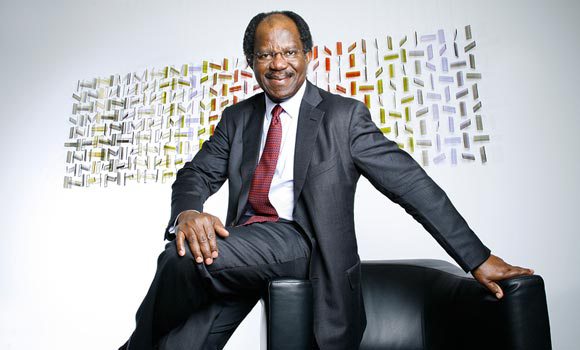 Charles Ebubedike conceived the idea for a pharmaceutical company together with classmates on his pharmacy degree course. He tells Stephen Robinson how they developed the company into an international business.
Charles Ebubedike conceived the idea for a pharmaceutical company together with classmates on his pharmacy degree course. He tells Stephen Robinson how they developed the company into an international business.
In February 2000, pharmacy student Charles Ebubedike attended a lecture that would come to define his career. While studying at the University of Portsmouth school of pharmacy, he and his classmates listened to a presentation by a director of Shire, a FTSE 100 company, on how it had grown to become one of the UK’s largest pharmaceutical companies within 20 years.
“It was both informative and inspirational,” says Ebubedike, “and this got us thinking and talking about the possibility of this career path post-graduation.”
Ebubedike and his peers went on to found Clinova — a pharmaceutical company specialising in over-the-counter (OTC) products, with research and development, sales and distribution facilities across five continents.
Founding Clinova
Today, Ebubedike works full time as the company’s chief executive and his focus is on building the organisation’s main brand, an oral rehydration salts product, in Britain. He and his classmates were first hooked by the idea of creating products they believed people wanted. “Arsalan Karim [Clinova’s co-founder] and I were housemates at the time, and what really struck us as interesting was bringing innovative products to the market that solved an unmet clinical need,” he says. “It seemed the fastest way to do this — albeit not the easiest — would be through forming our own company.”
Drawing inspiration from renowned pharmacists such as Henri Nestlé and Henry Wellcome, founders of Nestlé and Burroughs Wellcome & Company, respectively, co-founders Ebubedike, Karim and Jim Tremouliaris launched their company soon after graduating and formally set up headquarters in Southampton, Hampshire, in May 2006. The company name, Clinova, was chosen as a derivation of the words clinical and innovation, which they felt reflected the company’s ethos.
Gaining relevant experience
While helping build the company in his spare time, Ebubedike joined the Glenlyn Medical Centre Hampton Court, Surrey, as pharmacy manager. He continued to hold roles in management and pharmaceutical consultancy throughout the decade, including locum work at several large multiples.
“I felt it was important to gain experience prior to when we were in a position to launch [our first product, oral rehydration salts],” he says. “These roles gave me the grounding and insight needed to help maximise the possibility of success of the venture.
“I keenly remember my first manager at Kent Chemists, East Molesey, during my pre-registration period, who employed me in a managerial role thereafter. His style of management placed a lot of responsibility on me, which helped [me] quickly develop leadership and managerial expertise.”
Ebubedike explains that he and his Clinova colleagues were able to research and develop their products using their training and practice in pharmacy and their experience at other pharmaceutical companies, alongside postgraduate study in clinical therapeutics. “We have also worked in product development partnerships with other pharmaceutical organisations, universities and small technology companies to accelerate our research and development activity,” he says.
Ebubedike’s decision to work for his own company full-time came in 2011. “In the early years we spent much of our time in product development activities, market testing, infrastructure building and developing our technical and commercial network,” he says. “It was in late 2011 that we took the decision as founders to fully focus our energies and time on accelerating the progress on a number of scalable product candidates from our R&D pipeline towards market-ready status.”
Clinova’s big success to date, the ORS hydration tablets brand, launched in June 2012. Soon after, the company began expanding its personnel to take on more industry expertise to develop the company’s strategy.
Seeking new opportunities
Ebubedike says he and his colleagues are constantly scanning the marketplace to spot gaps where clinical need has not yet been met. “These could be unmet or incompletely satisfied indications, to category expansion opportunities — all [are] geared towards providing products which improve the health and well-being of patient and consumers.
“We then strategically look at the options available, taking into account current and future market dynamics and trends, to decide what to launch from the pipeline that matches our ethos of making the world a healthier place.”
Developing future leaders
Clinova now runs an intern programme each year, to give pharmacists industry experience. “I would recommend that interested pharmacists look at completing some form of postgraduate study geared towards the pharmaceutical industry,” says Ebubedike.
He believes any young pharmacist or pharmacy student thinking about setting up their own pharmaceutical company will need a strong work ethos to succeed: “It requires a good idea, together with a lot of hard work, dedication, potentially external funding and support, as there will undoubtedly be challenges and setbacks along the way.”
Read more about Clinova here



